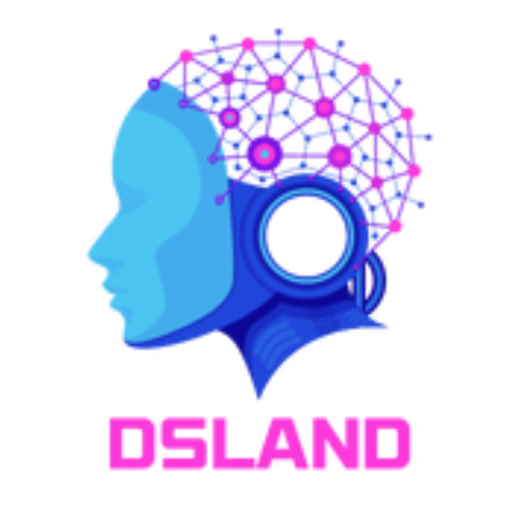AI Integration Urgently Needed in Colorado Classrooms, Report Reveals
In a rapidly evolving digital landscape, a recent report underscores an imperative shift needed within Colorado’s educational system: the integration of Artificial Intelligence (AI) into classrooms. This transformative move, proposed by the Colorado Education Initiative, aims to augment learning experiences, elevate academic performance, and prepare students for a tech-centric future.
The Urgency for AI in Education
As industries worldwide rapidly adopt AI technologies, the necessity for comprehensive AI education becomes increasingly apparent. The report highlights several key factors driving this urgency:
Bridging the Skills Gap
One of the foremost concerns is the widening skills gap. Traditional curricula are often inadequate in equipping students with the critical competencies needed for future workplaces. Integrating AI can play a pivotal role in:
- Developing Critical Thinking: AI-driven tools foster analytical skills by presenting complex problem-solving scenarios.
- Enhancing Technical Aptitude: Familiarity with AI prepares students for careers in technology, engineering, and beyond.
Enhancing Learning Experiences
AI has the potential to revolutionize learning methodologies through:
- Personalized Learning: AI algorithms can tailor educational content to meet individual student needs, optimizing learning outcomes.
- Interactive Engagement: AI-powered platforms offer interactive and immersive learning experiences, making education more engaging and effective.
The AI Roadmap for Colorado Classrooms
The report meticulously outlines a strategic roadmap for the seamless integration of AI in Colorado’s education system. This roadmap encompasses several critical stages:
Infrastructure Development
Building a robust technological infrastructure is fundamental. This entails:
- Upgrading Technological Resources: Ensuring all schools are equipped with the necessary hardware and software to support AI applications.
- Internet Accessibility: Providing high-speed internet access to facilitate uninterrupted digital learning.
Professional Development for Educators
To effectively integrate AI, educators need to be proficient in these advanced technologies. The proposed actions include:
- Comprehensive Training Programs: Offering extensive training to teachers on AI tools and their applications in the classroom.
- Ongoing Professional Development: Encouraging continuous learning and adaptation to evolving AI technologies.
Curriculum Integration
To embed AI into the educational fabric, curriculum modifications are essential. This involves:
- Incorporating AI Modules: Introducing AI concepts at various educational levels to build foundational knowledge.
- Interdisciplinary Approach: Integrating AI topics across different subjects to illustrate its application in various fields.
Benefits of AI Integration
The integration of AI into Colorado classrooms is poised to yield substantial benefits:
Improved Student Outcomes
AI’s ability to customize learning experiences can significantly improve student outcomes by:
- Addressing Learning Gaps: AI can identify and address individual learning gaps, ensuring no student is left behind.
- Enhancing Engagement: Interactive AI tools make learning more engaging, thus improving retention and comprehension.
Efficient Resource Management
AI can streamline administrative tasks, allowing educators to focus more on teaching. This includes:
- Automating Grading: AI-driven grading systems can handle assessments quickly and accurately.
- Administrative Support: AI can assist in scheduling, attendance tracking, and other administrative duties.
Preparing Students for the Future
Equipping students with AI knowledge and skills prepares them for future job markets that will increasingly demand proficiency in AI-related technologies. This includes:
- Job Readiness: Students will be better prepared for careers in emerging fields such as data science, machine learning, and AI development.
- Continuous Learning: An understanding of AI fosters lifelong learning, encouraging students to stay abreast of technological advancements.
Challenges and Considerations
While the integration of AI in education presents numerous benefits, it also comes with challenges that must be addressed:
Equity and Access
Ensuring equitable access to AI tools and resources is crucial. This involves:
- Addressing the Digital Divide: Providing equal access to technology for all students, irrespective of their socioeconomic status.
- Resource Allocation: Ensuring adequate funding and resources are available to implement AI initiatives across all schools.
Ethical Considerations
AI integration must be guided by strong ethical principles to safeguard student privacy and data security. Key considerations include:
- Data Privacy: Implementing stringent policies to protect student data from unauthorized access and misuse.
- Bias Mitigation: Ensuring AI algorithms are free from biases that could disadvantage certain groups of students.
Teacher Adaptation
The transition to AI-driven education demands significant adaptation from teachers. This involves:
- Training and Support: Providing teachers with the necessary training and ongoing support to effectively use AI tools.
- Change Management: Implementing strategies to manage the transition and address any resistance to change.
Conclusion
The imperative to integrate AI into Colorado classrooms is clear and pressing. By following the proposed roadmap, the educational system can harness the transformative potential of AI to enhance learning experiences, bridge the skills gap, and prepare students for a future dominated by technology. As we navigate this transition, addressing challenges such as equity, ethical considerations, and teacher adaptation will be crucial to ensuring successful implementation.
Ultimately, the integration of AI in education represents a paradigm shift that holds the promise of revolutionizing how we teach and learn. It is a necessary step towards creating an education system that is both innovative and inclusive, preparing students to thrive in an increasingly digital world.
